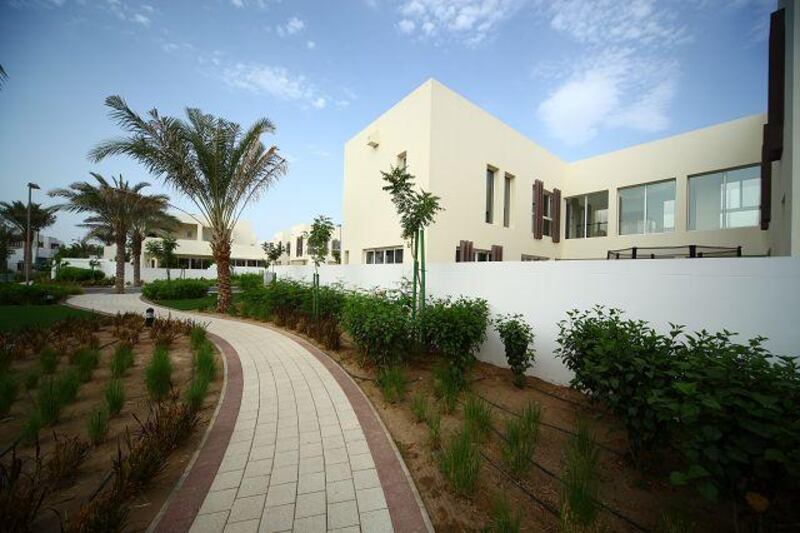MUSCAT // At the peak of the regional property boom in 2008, the developer Sama Dubai built an elaborate sales office for its Salam Yiti project in a vibrant area of downtown Muscat. It was a new phenomenon for the usually staid Omanis: spending millions of rials on what was ultimately a marketing effort.
The centre, which featured ornate fountains, large models of the resort and replicas of rooms in the villas, was meant to last only as long as a quick sales push. It was built without foundations and the land was leased for only five years. Just 18 months later, a red and white plastic tape blocks access to the building, the heavy wooden doors are locked and the fountains are dry. Salam Yiti is on hold.
All of the property economies across the Gulf took a hit from late 2008 as the financial crisis spread around the world, but none fell as hard over the past 18 months as Dubai. There were, however, other casualties -projects in neighbouring countries launched on the Dubai model of large marketing budgets, financing from pre-sales and the idea that bigger is better. "I always thought if there is one thing that Oman shouldn't do it is imitate Dubai," said Eihab al Saleh, the chief operating officer of the OHI group and a member of one of Muscat's leading families.
"Things are different here. We have so much land. It's beautiful. We didn't need these things." Property prices in Muscat have fallen by between 30 and 40 per cent since the downturn started, but as sales begin to pick up again, thanks in large part to a proactive visa policy from the government, local developers are beginning to define what they believe should be the Omani model. Michael Lenarduzzi, the chief executive of The Wave project, said his company had shifted away from big, high-profile launches to smaller sales efforts that cater to the different communities in Muscat: expatriates who have lived in Oman for decades; young families looking for their first home; and locals who are looking for long-term investments.
Foreigners looking for second homes and those looking for speculative investments that they could re-sell in a short period for profits are no longer on the agenda, Mr Lenarduzzi said. The result is that a recent offering of 168 apartments and townhouses last month has so far sold more than 80 per cent. "When I first came, there was a lot of that Dubai thinking going on and now that's changed," Mr Lenarduzzi said.
"After the slowdown, we basically went back and did a lot of research and we realised it wasn't just about big launches. It was about investing in communities; building the golf course and marina we promised." The Oman model, he said, was to look for "steady-state, long-term sustainability". This is all the more important because Oman's oil supplies will only last another few decades and the country's priority is to become a leading tourist destination, as well as building up other industries such as manufacturing and logistics.
The stalling of projects like Salam Yiti and Blue City, a proposed US$22 billion (Dh80.79bn) master-planned city 45 minutes west of Muscat that could be liquidated under plans being discussed by the developer, are weighing heavily on these efforts, but they are also pushing the Oman government to reconsider what will bring tourists to the country. "The fact that some of these projects are having trouble selling doesn't affect us directly, but it does indirectly affect our strategy to build up the tourism sector," said Wael Lawati, the chief executive of the government-owned tourism developer Omran.
Analysts point out that to service its tourism agenda, the government has moved away from new hotel launches and large-scale resorts and is focusing on how to bring holidaymakers to the country. Oman Air has increased its flights into the country and Muscat is hosting more events, such as the Asian Beach Games next December, to put itself on the global tourism map. Matthew Wright, a development adviser at the property consultancy Cluttons in Oman, said the discussion across the board had shifted to "generation of demand".
"You actually need to know who is going to come and buy this stuff, where the demand is going to come from," Mr Wright said. "The idea that if you build it, the demand will generate by itself is no longer true. "What's happened in the last year and a half is the market has grown up quite quickly." Demand would not be built through extravagant sales centres, he said. "It comes down to why people want to come to Oman for a holiday," Mr Wright said.
"It's about what is actually here, rather than what we say will be here." bhope@thenational.ae






